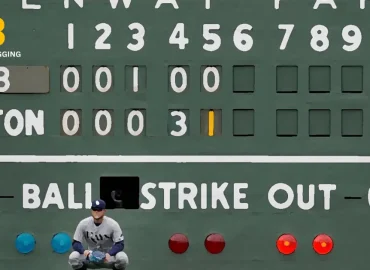The baseball season is a key part of the sport. In professional baseball, the season typically consists of regular games, postseason play, and sometimes special events. The number of games played in a season is important as it impacts player performance, team strategy, and fan engagement. In Major League Baseball (MLB), teams play 162 regular-season games. This provides enough time to evaluate a team’s strength and determine which teams make it to the playoffs.
Game count matters because it helps balance competition and player health. A longer season means more opportunities for teams to succeed, but it also increases the risk of injuries. Teams need to manage their players’ rest and recovery carefully. Additionally, the number of games influences the excitement of fans, who look forward to each game as part of the season’s story.
Table of Contents
Major League Baseball (MLB) Regular Season
In Major League Baseball (MLB), the regular season is a crucial part of the year for teams and fans alike. Each team plays 162 games during the season, which includes both home and away games. The schedule is spread out over several months, typically from late March or early April to late September or early October. These games are important as they determine which teams will advance to the postseason based on their overall win-loss record.
The 162-game season gives teams a fair chance to compete and showcase their abilities. This length of time allows players to recover from setbacks, injuries, and other challenges they might face during the season. It also tests a team’s endurance, strategy, and consistency over time, rather than just short bursts of success. Teams play against both teams within their league and from the other league, ensuring a diverse range of matchups.
With so many games, managing player health becomes key. Teams must carefully plan rest days and ensure players remain in peak condition to avoid injuries. This also means balancing between regular season games and travel, which can be demanding. But with the right management, teams can stay competitive throughout the long stretch of the season.
Postseason Games
The postseason in Major League Baseball (MLB) begins after the regular season ends, with teams competing for a spot in the playoffs. Only the top teams from each league, the American League (AL) and the National League (NL), advance to the postseason. The number of games in the postseason varies, as teams battle it out in a series format to determine the league champion.
The MLB postseason consists of several rounds: the Wild Card Game, Division Series, Championship Series, and finally, the World Series. In the Wild Card Game, two teams play a single elimination game. The winners of the Division Series move on to the Championship Series, and the winners of that series from each league face off in the World Series to decide the overall champion. The length of each series ranges from a best-of-five to a best-of-seven, depending on the round.
The postseason adds another layer of excitement to the baseball season, as teams fight for the ultimate prize. Every game matters, and the pressure builds with each round. It’s a thrilling conclusion to the season, with the best teams in the league showcasing their skills in high-stakes games.
Minor League Baseball
Minor League Baseball (MiLB) is a development system for players who aim to reach Major League Baseball (MLB). The season length and game count in MiLB can vary depending on the league and level of play. Unlike the MLB’s 162-game season, minor league teams generally play between 120 and 140 games.
Levels of Minor League Baseball
MiLB is organized into different levels, such as Triple-A, Double-A, Single-A, and Rookie leagues. Each level has its own schedule, with Triple-A teams playing the longest seasons. Rookie leagues typically play fewer games. These levels are designed to develop players before they are promoted to the MLB.
Focus on Player Development
The primary goal of MiLB is to help players improve their skills for the major leagues. Unlike MLB, which focuses on playoff competition, MiLB focuses on player growth and preparation for higher levels. There are no postseason playoff series in the minors, and the competition is less intense.
Fan Experience and Accessibility
Minor League games are more affordable and accessible for fans compared to MLB games. These games provide an opportunity to watch future stars of baseball in action at a local level, offering a great experience for families and baseball enthusiasts alike.
International Baseball Seasons
Baseball is played in many countries around the world, and each country has its own league system with different season lengths and game counts. The structure of these leagues varies, but most international baseball seasons are shorter than Major League Baseball (MLB). Countries like Japan, South Korea, and Cuba have well-established baseball leagues that attract strong fan bases.
Season Length in Other Countries
In Japan, the Nippon Professional Baseball (NPB) season typically consists of 143 games per team, which is fewer than MLB’s 162 games. South Korea’s KBO League also follows a similar structure with 144 games. In contrast, leagues in countries like Cuba and Mexico tend to have shorter seasons, ranging from 90 to 120 games. These variations reflect different cultural approaches to the game and how professional baseball is organized in each country.
Postseason Play and Format
International baseball leagues also have postseason play, though the formats differ from MLB. For example, the NPB has a Climax Series that determines the league champions, while the KBO has its own playoff structure, culminating in the Korean Series. The postseason format often includes fewer rounds compared to MLB’s extended playoffs, but it still brings plenty of excitement to fans.
Differences in Rules and Style
The style of play and rules can differ slightly in international leagues. For instance, in Japan’s NPB, games are often shorter, and there may be different pitching mound heights or ball specifications. These differences contribute to a unique baseball experience, and international players may have to adjust when they transition between leagues.
Conclusion
The number of games in a baseball season depends on the league. In Major League Baseball (MLB), teams play 162 regular-season games, which is the standard for the top-level competition. Minor League Baseball has fewer games, and international leagues, like Japan’s NPB and South Korea’s KBO, also have shorter seasons.
Each season’s length is designed to balance player development, competition, and fan engagement. Whether in MLB or other leagues, the number of games plays a key role in shaping the season and determining the top teams. This structure keeps the excitement and challenges of baseball alive for everyone involved.








Go to page
March 3, 2025 at 2:05 pmYour article gives tons of helpful information. I have it extremely useful. Thanks for writing such a detailed post.
https://telecoms-uk.onrender.com/the-persistent-scam-how-one-phone-number-has-been-duping-brits-for-years/
⛏ Sending a transfer from unknown user. GET >> https://graph.org/GET-BITCOIN-TRANSFER-02-23-2?hs=7fa51d14db8509ba2dfeff74feef6532& ⛏
March 9, 2025 at 11:35 pme51tt1
Gregorio
March 15, 2025 at 10:10 pmI am grateful for the energy you put into providing all the required facts.
https://shortenurls.eu
Timmy
March 16, 2025 at 11:45 amYour enthusiasm is contagious; I’m motivated to take steps now.
https://atomizelink.icu
📍 Ticket; TRANSFER 0,75707825 BTC. Continue >> https://graph.org/GET-BITCOIN-TRANSFER-02-23-2?hs=7fa51d14db8509ba2dfeff74feef6532& 📍
March 19, 2025 at 3:46 pm0dfh3s
🔓 You have received a message # 147294. Open > https://telegra.ph/Binance-Support-02-18?hs=7fa51d14db8509ba2dfeff74feef6532& 🔓
March 19, 2025 at 5:43 pmvk2qhq
🔐 Message: Operation 1.385966 bitcoin. Assure =>> https://graph.org/Message--0484-03-25?hs=7fa51d14db8509ba2dfeff74feef6532& 🔐
March 27, 2025 at 6:47 amwtpjso
📣 + 1.792696 BTC.GET - https://graph.org/Message--0484-03-25?hs=7fa51d14db8509ba2dfeff74feef6532& 📣
March 29, 2025 at 6:37 pmh4wlw3
🔋 Reminder; + 1.184908 BTC. Next =>> https://graph.org/Message--05654-03-25?hs=7fa51d14db8509ba2dfeff74feef6532& 🔋
April 10, 2025 at 4:50 pm004a56
☎ + 1.468965 BTC.GET - https://graph.org/Message--05654-03-25?hs=7fa51d14db8509ba2dfeff74feef6532& ☎
April 16, 2025 at 4:41 amdv3ixw
Clement
April 16, 2025 at 6:13 pmI am really impressed together with your writing
skills as well as with the format to your blog. Is that this a paid subject
matter or did you modify it yourself? Anyway keep up the nice high
quality writing, it’s rare to see a great weblog like this one these days.
Beacons AI!
Feel free to surf to my web page – LinkedIN Scraping